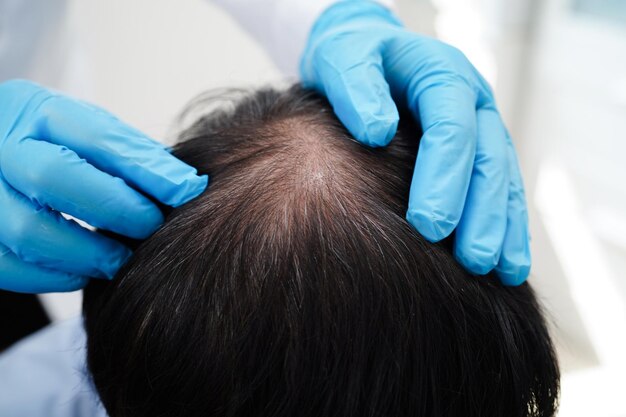Hair loss can be a distressing experience for many women. Whether due to genetics, aging, medical conditions, or lifestyle factors, the appearance of thinning hair or bald spots can significantly affect one’s confidence. Fortunately, hair transplants offer a solution. Here are 15 important things South African women should know about this procedure:
1. What is a Hair Transplant?
A hair transplant is a surgical procedure that involves moving hair follicles from one area of the scalp (usually where hair is denser) to an area experiencing thinning or baldness. The goal is to restore natural hair growth in the affected areas.
2. Types of Hair Transplant Techniques
There are two main types of hair transplant procedures:
- FUT (Follicular Unit Transplantation): Involves removing a strip of scalp tissue from the back of the head, from which hair follicles are extracted and transplanted.
- FUE (Follicular Unit Extraction): Individual hair follicles are harvested directly from the scalp and transplanted to thinning or bald areas.
3. Is Hair Transplant Suitable for Women?
Yes, although hair transplants are more commonly associated with men, many women can benefit from the procedure, especially those with androgenetic alopecia (female pattern baldness) or thinning hair due to other causes like traction alopecia or hormonal changes.
4. Ideal Candidates for Hair Transplants
Women with localized hair loss, a stable donor area (usually the back of the scalp), and realistic expectations are ideal candidates for hair transplants. A consultation with a hair specialist can help determine if the procedure is right for you.
5. What Causes Hair Loss in Women?
Hair loss in women can result from various factors, including genetics, hormonal imbalances, stress, medications, and conditions like alopecia areata. A thorough evaluation is necessary to determine the underlying cause before considering a transplant.
6. Non-Surgical Alternatives
Before opting for a hair transplant, women may explore non-surgical treatments like topical medications (e.g., minoxidil), platelet-rich plasma (PRP) therapy, and low-level laser therapy (LLLT). These treatments can sometimes stimulate hair growth and may delay the need for surgery.
7. The Procedure
Hair transplants are typically performed under local anesthesia. Depending on the technique and the extent of hair loss, the procedure may take several hours. Patients may experience mild discomfort but typically resume regular activities within a few days.
8. Cost of Hair Transplants in South Africa
The cost of hair transplants can vary depending on the clinic, surgeon, and the extent of the procedure. In South Africa, prices typically range from R30,000 to R100,000, depending on the number of grafts needed. It’s essential to choose a qualified and experienced surgeon for the best results.
9. Recovery Time
After the procedure, the transplanted area will be sensitive. Scabbing and swelling are normal, but these typically subside within a week or two. Most women can return to work in a few days, but strenuous activities should be avoided for at least two weeks.
10. Hair Shedding After Transplant
It’s common for transplanted hair to fall out within the first few weeks after the procedure. This is a normal part of the healing process. New hair growth will begin within a few months, and the final results are typically visible after 12 to 18 months.
11. Permanent Results
Hair transplants offer permanent results. The transplanted hair is resistant to the hormone (DHT) responsible for hair loss in most cases. Once the follicles take root, they will continue to grow hair just like they would in their original location.
12. Risks and Side Effects
Like any surgical procedure, hair transplants carry risks. These include infection, scarring, or unnatural-looking hair growth. Choosing a reputable surgeon and following post-procedure care instructions can minimize these risks.
13. Natural-Looking Results
When performed by an experienced surgeon, hair transplants can yield very natural-looking results. The hair follicles are placed to mimic the natural direction of hair growth, ensuring the final appearance is seamless and undetectable.
14. Maintenance of Transplanted Hair
The transplanted hair will require the same care as your natural hair. Proper hair care routines, including gentle washing and avoiding excessive heat or chemical treatments, are essential to maintain healthy, growing hair.
15. Consultation is Key
Before deciding on a hair transplant, it’s crucial to have a thorough consultation with a specialist. They will assess the cause of your hair loss, determine if you’re a good candidate, and explain the process in detail, including the expected outcomes and costs.
Hair transplants are an increasingly popular solution for women dealing with hair loss, offering the possibility of restoring confidence and achieving fuller, thicker hair. If you’re considering this option, make sure to do your research, consult a trusted specialist, and understand both the benefits and limitations of the procedure.








